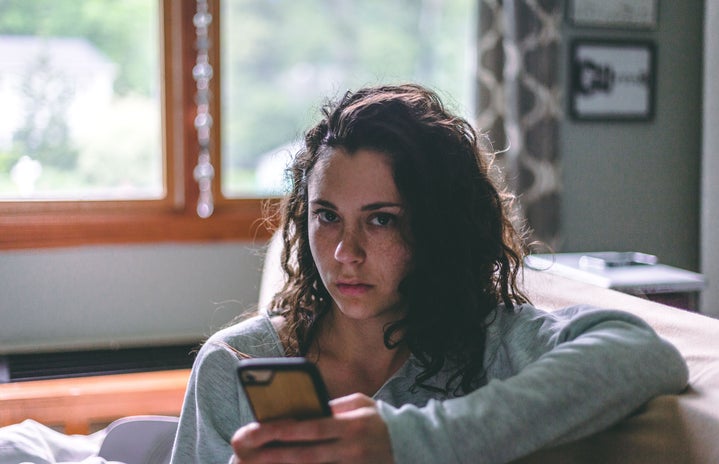Recent research on New Year’s Resolutions among the Dutch showed that 63% of GenZers mentioned spending less time on their screens in 2024. If you are part of the 63%, how’s this goal going for you halfway into the year? Probably not so well. it can be hard to disconnect in a world where the lines between real life and technology are blurred.
Regardless of your screen time status, you are in the right place. Here are 5 tips to start actually reducing your screen time, from one screenager to another.
1. Phone Free Mornings
Do you find yourself reaching for your phone first thing in the morning? Stop. Looking at your phone as soon as you wake up can have detrimental effects on our brain function and overall wellbeing. Instead, allow yourself to reconnect with your surroundings first. Get up, brush your teeth, stretch your body, and get yourself in order. Only then should you reach for your phone.
“I need to check my email as soon as you wake up.” Unless you’re a hotshot working at Goldman and are subject to their 15-minute rule, I doubt it. Do yourself a favor, and resist the temptation to start your day on your iPhone. You most likely have a busy day ahead, start your mornings with a little peace and quiet.
Further research shows that constant exposure to notifications may foster dependency and cognitive overload, which may lead to increased stress and worsened cognitive performance during the day. Set the right tone to your day in the morning, without your phone.
2. Out of Sight, Out of Mind
As a busy student, your phone can be your biggest distraction. I often find myself reaching for my phone during lectures and study sessions for a quick hit of dopamine. This quick distraction has a big price, however, as having your phone nearby can affect your cognitive ability. Studies have shown that even having your phone out on the desk where you work leads to cognitive impairment. Next time you study, try putting your phone in your backpack and see how much more you can get done. If you seriously have to lock in, I suggest powering off your phone altogether and leaving it in your bag.
The seemingly simple fix of keeping your phone out of sight/out of arm’s reach can be helpful. I’ve noticed that when I’m studying and my phone is out of reach, my assignments get completed faster, as I dedicate my full focus to the task at hand.
3. Turn off Social Media Notifications
Do you need to be notified of every like on your new story? Every time your friend comments on a mutual’s post? No, you don’t. Every time your phone buzzes, your brain releases dopamine, a neurotransmitter that makes you feel good. Since we crave dopamine, fast fixes like notifications are very appealing. Unfortunately, frequent notification buzzes are cooking our dopamine receptors and keep us coming back for more.
Real life is so much more fulfilling than what you see on social media. Allow yourself to focus on the present moment by turning off social media notifications.
4. Charge Devices Far from Bed
I started charging my phone on a shelf across my bed in high school to avoid going on my phone before bed. Building this habit has allowed me to spend my nights disconnected and at peace. If I didn’t fall asleep upon impact of head to pillow, I would pick up a book or journal before bed. I’ve carried this habit into college, and I spend time before bed journaling instead of scrolling on social media. This habit allows me to separate myself from all the buzz before bed and reflect without distractions.
Added perk: If you use your phone as an alarm, having your phone out of arm’s reach from your bed can actually help you get up from the first ring, rather than endlessly snoozing. As a retired snoozer, I can confidently affirm this habit has helped me start my mornings off right!
5. Set Screen Time Passwords
This tip has allowed me to see the biggest decrease in my screen time. Analyze which apps you use the most and set a screen time limit for them. For me, that was Instagram and TikTok. I regularly found myself doomscrolling on both apps so I gave myself a limit of 20 and 30 minutes, respectively.
The catch? Ask a close friend or family member to set a password on your screen time limits. This way, you can’t push the convenient “Ignore for 15 More Minutes”. It’s hard to have self-control when these apps are designed to be addictive, so I would constantly ignore my limits. However, once my friend created a password that only he knew, I wasn’t able to go past my allotted screen time limit.
Now here I am, spending my afternoon writing this article instead of doomscrolling. If you take away any tip from this article, let it be this one. I promise you, you will have so much newfound free time in your day.
Spend your morning phone free, keep your phone out of sight and arm’s reach, turn off social media notifications, and set screen time passwords. That’s all you need to do to take back control of your life and reduce your screen addiction. You will be surprised how different your life can be if you implement these tips, so why wait? Start now and stop being a screenager!


